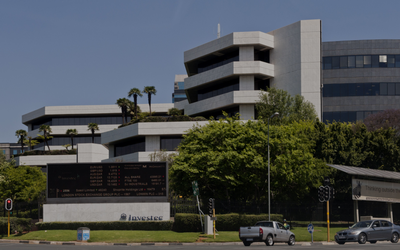Source:

Investec Australia Property Fund: Promising value chaser for offshore investment
by Joan Muller,
2016-03-09 12:27:59.0
IT’S no secret that the JSE’s rand hedge property counters have been all the rage in recent years, with some stocks delivering staggering returns for punters who got in early. Think Romanian retail play New Europe Property Investments, sister fund Rockcastle and London-centred Capital & Counties Properties. The share prices of all three have more than doubled over the past two years alone.
But offshore-focused property counters are starting to look expensive. Not only have many of them already run hard, but there is also the view that the rand may be oversold, which will limit further upside from currency weakness. That means investors who are still keen to increase their exposure to offshore real estate markets should proceed with caution.
One offshore listing that hasn’t yet shot the lights out and is now appearing increasingly on the radars of value chasers is Investec Australia Property Fund (IAPF). It is one of the top picks for 2016 of boutique property asset manager Sesfikile Capital.
The counter delivered a total return of 19% last year, not too shabby if one compares it with the listed property sector’s overall 8%, but below the 30%-50% achieved by most other foreign listings. Sesfikile director Mohamed Kalla says: "The stock is now trading at a forward dividend yield of more than 8% in Australian dollars, which is good value compared with yields of less than 5% for most of its UK and European-focused counterparts."
The company is still achieving double-digit dividend growth, with management guiding 10%-12% in Australian dollars for the full year to the end of March.
After taking the rand’s depreciation against that currency into account, the company’s interim dividend for the six months to the end of September last year was up a substantial 22% in rand. Kalla also likes the company’s very simple and focused mandate. "You know exactly what you are investing in and what management’s strategy is."
IAPF, which is the Investec group’s first listed offshore-focused property play, owns 19 industrial and office properties, worth AU$461m (R5.2bn). The portfolio is spread across most key Australian cities, including Sydney, Brisbane, Melbourne and Perth.
Management, with former South African Graeme Katz at the helm, has grown the portfolio nearly fourfold since October 2013, when the fund was listed on the JSE with the backing of South African property veterans Sam Leon and Sam Hackner. At the time, IAPF owned eight properties, worth AU$130m.
Katz is likely to clinch more yield-enhancing deals this year following an R690m rights issue which opened earlier this month. It is the first time the company is tapping capital from the market since October 2014. Proceeds from the rights offer will be used to reduce the fund’s gearing and to pursue further growth opportunities.
Says Katz: "IAPF has had a very successful two years from an acquisition perspective. We have taken advantage of attractive opportunities through the Investec network, and the rights issue will allow us to retain this capacity in a very competitive market.’’ Katz believes Australia is still attractive from a real estate investment point of view given that quality properties can be bought at yields exceeding 8% while debt funding costs sit below 5%. "That represents a significant yield spread above other developed markets that are currently ex-growth.’’
Analysts say management was clever to go the rights issue route instead of undertaking an accelerated book build, which until recently was the favoured way for property companies to raise fresh capital. In the year to date, at least five offshore-focused real estate counters have embarked on plans to collectively raise more than R5bn to fund their various growth ambitions.
Evan Robins, portfolio manager at Old Mutual Investment Group’s MacroSolutions boutique, says current market uncertainty will no doubt make it harder for companies to raise cash. However, those such as IAPF that go the rights issue route can price it at a deep discount to ensure take-up among existing shareholders. In contrast, an accelerated book build often imposes a limitation on the discount at which a company can issue new shares. "Also, a book build allows new shareholders to come in, so the lower the price of a book build the worse it is for existing shareholders who haven’t participated," says Robins.
IAPF’s rights offer price was set at R11.58/share, which represented a 7.4% discount to the 30-day average trading price at the close of business on January 14 and a 15% discount to the R13.60 at which the stock peaked at the end of January.

Investec. Picture: MARTIN RHODES
IT’S no secret that the JSE’s rand hedge property counters have been all the rage in recent years, with some stocks delivering staggering returns for punters who got in early. Think Romanian retail play New Europe Property Investments, sister fund Rockcastle and London-centred Capital & Counties Properties. The share prices of all three have more than doubled over the past two years alone.
But offshore-focused property counters are starting to look expensive. Not only have many of them already run hard, but there is also the view that the rand may be oversold, which will limit further upside from currency weakness. That means investors who are still keen to increase their exposure to offshore real estate markets should proceed with caution.
One offshore listing that hasn’t yet shot the lights out and is now appearing increasingly on the radars of value chasers is Investec Australia Property Fund (IAPF). It is one of the top picks for 2016 of boutique property asset manager Sesfikile Capital.
The counter delivered a total return of 19% last year, not too shabby if one compares it with the listed property sector’s overall 8%, but below the 30%-50% achieved by most other foreign listings. Sesfikile director Mohamed Kalla says: "The stock is now trading at a forward dividend yield of more than 8% in Australian dollars, which is good value compared with yields of less than 5% for most of its UK and European-focused counterparts."
The company is still achieving double-digit dividend growth, with management guiding 10%-12% in Australian dollars for the full year to the end of March.
After taking the rand’s depreciation against that currency into account, the company’s interim dividend for the six months to the end of September last year was up a substantial 22% in rand. Kalla also likes the company’s very simple and focused mandate. "You know exactly what you are investing in and what management’s strategy is."
IAPF, which is the Investec group’s first listed offshore-focused property play, owns 19 industrial and office properties, worth AU$461m (R5.2bn). The portfolio is spread across most key Australian cities, including Sydney, Brisbane, Melbourne and Perth.
Management, with former South African Graeme Katz at the helm, has grown the portfolio nearly fourfold since October 2013, when the fund was listed on the JSE with the backing of South African property veterans Sam Leon and Sam Hackner. At the time, IAPF owned eight properties, worth AU$130m.
Katz is likely to clinch more yield-enhancing deals this year following an R690m rights issue which opened earlier this month. It is the first time the company is tapping capital from the market since October 2014. Proceeds from the rights offer will be used to reduce the fund’s gearing and to pursue further growth opportunities.
Says Katz: "IAPF has had a very successful two years from an acquisition perspective. We have taken advantage of attractive opportunities through the Investec network, and the rights issue will allow us to retain this capacity in a very competitive market.’’ Katz believes Australia is still attractive from a real estate investment point of view given that quality properties can be bought at yields exceeding 8% while debt funding costs sit below 5%. "That represents a significant yield spread above other developed markets that are currently ex-growth.’’
Analysts say management was clever to go the rights issue route instead of undertaking an accelerated book build, which until recently was the favoured way for property companies to raise fresh capital. In the year to date, at least five offshore-focused real estate counters have embarked on plans to collectively raise more than R5bn to fund their various growth ambitions.
Evan Robins, portfolio manager at Old Mutual Investment Group’s MacroSolutions boutique, says current market uncertainty will no doubt make it harder for companies to raise cash. However, those such as IAPF that go the rights issue route can price it at a deep discount to ensure take-up among existing shareholders. In contrast, an accelerated book build often imposes a limitation on the discount at which a company can issue new shares. "Also, a book build allows new shareholders to come in, so the lower the price of a book build the worse it is for existing shareholders who haven’t participated," says Robins.
IAPF’s rights offer price was set at R11.58/share, which represented a 7.4% discount to the 30-day average trading price at the close of business on January 14 and a 15% discount to the R13.60 at which the stock peaked at the end of January.






















Change: 1.19%
Change: 1.36%
Change: 2.19%
Change: 1.49%
Change: -0.77%
Data supplied by Profile Data
Change: -0.08%
Change: 0.12%
Change: 1.19%
Change: 0.00%
Change: 0.10%
Data supplied by Profile Data
Change: 0.34%
Change: 0.41%
Change: 0.34%
Change: 0.22%
Change: 0.23%
Data supplied by Profile Data
Change: 0.05%
Change: -0.51%
Change: -0.13%
Change: -0.17%
Change: 0.31%
Data supplied by Profile Data